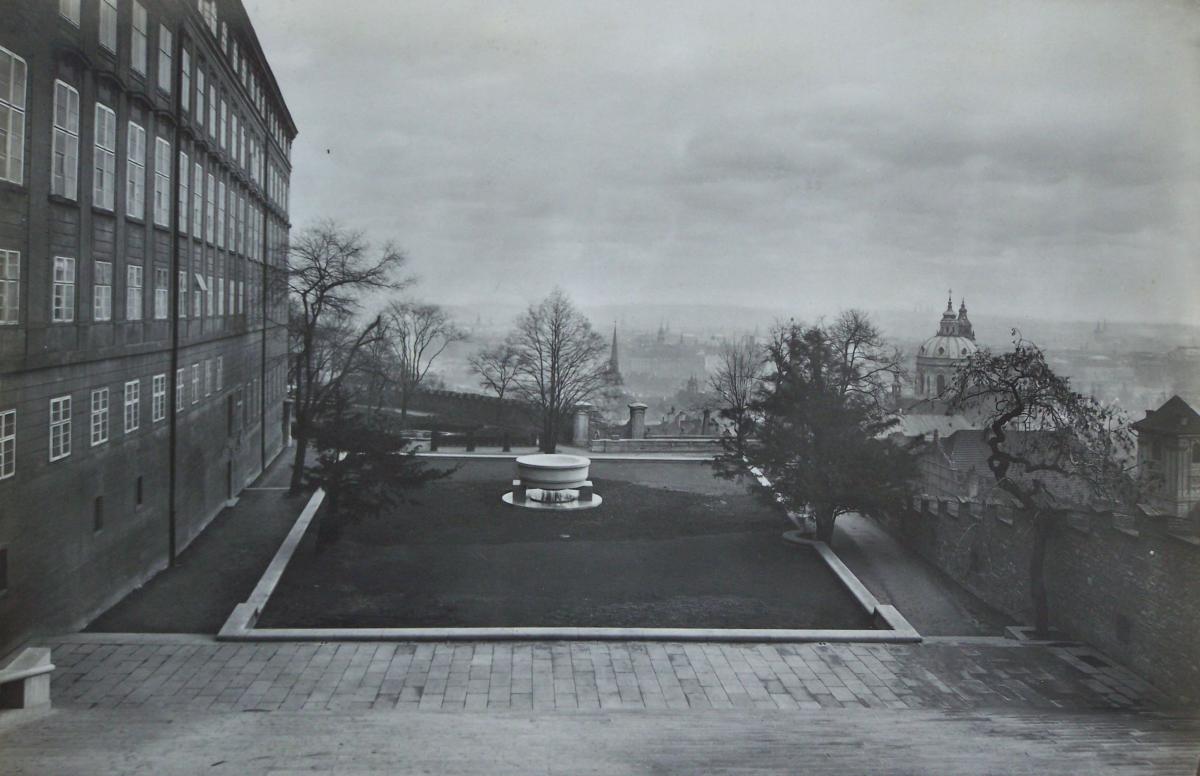The designs of Slovenian architect Jože Plečnik have been subject of much attention from architetural historians, in particular his work at Prague Castle. Scholars typically describe Plečnik's renovation of the Castle as a fulfillment of Tomáš Masaryk's charge that the ancient citadel be transformed into a "democratic castle." But at the core of President Masaryk's vision for democratic Czechoslovakia was the personal religious conviction he held throughout his life. These religious ideals were shared by his daughter Alice Masaryková, who envisioned Prague Castle not only as the presidential seat but as a "sacred acropolis"—for the new republic and for all of Europe. In the architect Plečnik, she found someone capable of bringing this vision to reality.
American historian Bruce Berglund examines the relationship between Plečnik and the Masaryk family in his new book Castle and Cathedral in Modern Prague: Longing for the Sacred in a Skeptical Age. The book looks at the personal religious ideals that motivated the president, his daughter, and the architect, and it views their collaboration at the Castle in the context of Prague's religious and cultural history in the 1920s and 30s.
Bruce Berglund is professor of history at Calvin College. He has been a Fulbright and Fulbright-Hays scholar in the Czech Republic and Slovenia. Along with Brian Porter-Szűcs of the University of Michigan, he is co-editor of the volume of essays Christianity and Modernity in Eastern Europe (Central European University Press, 2010). This collection was the product of a four-year collaborative project among scholars from the U.S. and Europe. His book Castle and Cathedral in Modern Prague: Longing for the Sacred in a Skeptical Age looks at religion and culture in interwar Prague, drawing upon works of philosophy and theology, literary essays and political speeches, and the creative work of artists and architects. He is currently writing a book on the history of world ice hockey.
